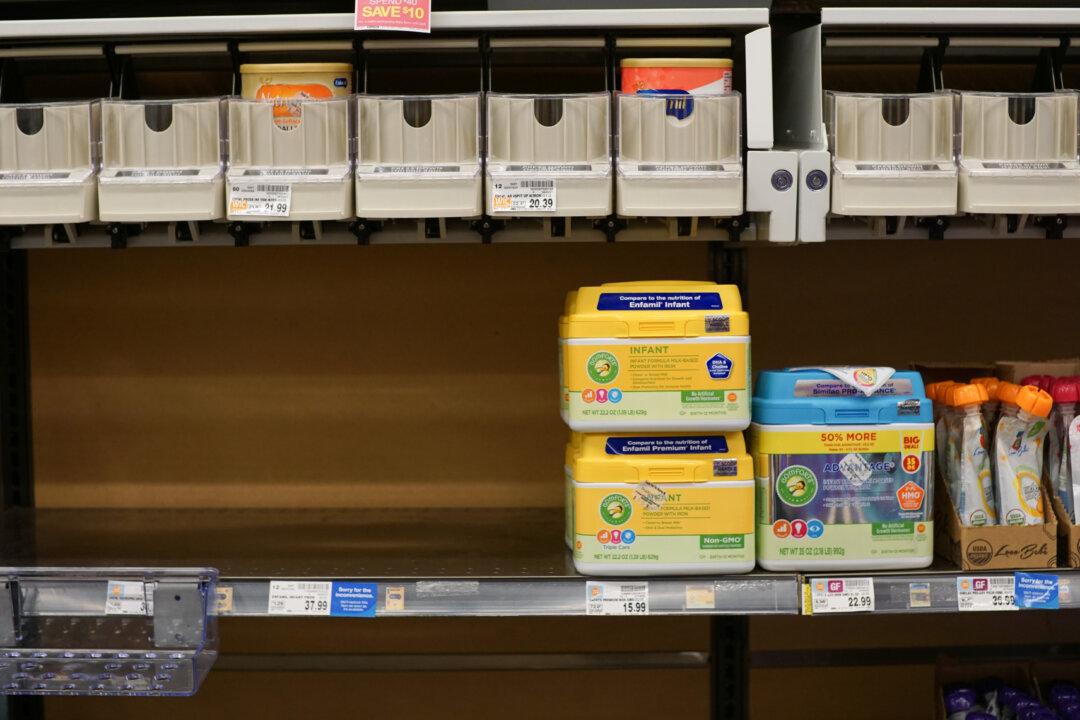With a baby formula shortage in the United States and Canada that has parents worried and scrambling, Canadians may be wondering what formula makers are doing to shore up supplies domestically.
Spotlight was put on Canada Royal Milk (CRM) in Kingston, Ont.—a major facility which describes itself as “the only producer of infant formula in Canada”—when it was brought to light that it only ships its product to China, and doesn’t currently serve the Canadian market.





